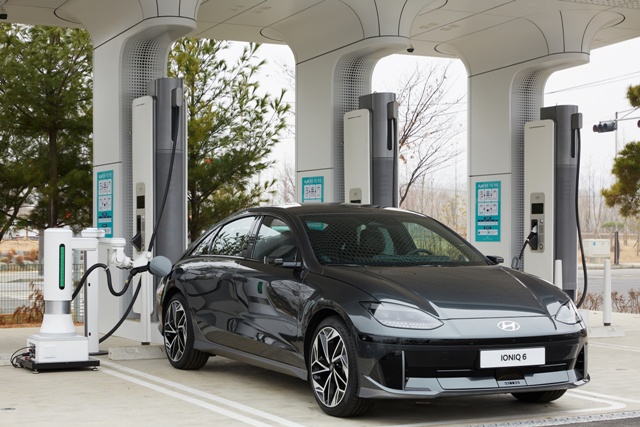
Hyundai Motor Group aims to be in Top 3 EV Manufacturer by 2030
Hyundai Motor Group (the Group) announced its goal to become one of the world’s top 3 EV manufacturers by 2030 through the combined sales of Hyundai Motor, Kia and Genesis electric models, at the groundbreaking ceremony of Kia’s dedicated plant for purpose-built vehicle (PBV) production in Korea. The Group also highlighted its plans to invest KRW 24 trillion in the domestic EV industry through Hyundai Motor, Kia and Hyundai MOBIS by 2030.
The Group announced plans to significantly expand the annual EV production in Korea to 1.51 million units and global volume to 3.64 million units by 2030. To enable such plans, Hyundai Motor and Kia, alongside with Hyundai MOBIS, plan to invest KRW 24 trillion (approximately USD 18 billion) in the EV sector domestically.
The Group’s large-scale investment aims to upgrade Korea’s EV ecosystem and strengthen its role as a hub for driving innovation in the global automotive industry. It is also expected to promote a virtuous cycle of domestic EV production, R&D, infrastructure and related industries.
To enhance the domestic EV production capacity, Kia is building a new plant dedicated to produce electric PBVs, while also expanding the existing EV lines at plants in order to expand the production capacity of EVs.
In addition, the Group will invest heavily in R&D, such as developing a platform for next-generation EVs, expanding product lineups, developing core parts and advanced technologies, and establishing research facilities. It will also promote technology development with its partners.
This will enhance integrated marketability across hardware and software, including diversification of dedicated platform product lineups, advancement of power electric (PE) systems that are key to EV performance, such as batteries and motors, and development of technologies to increase all-electric range (AER) on a single charge.
Activities will be undertaken to accelerate the development of next-generation platforms to improve the performance of EVs. The Group plans to sequentially develop dedicated platforms for each vehicle class under the Integrated Modular Architecture (IMA) system, including the ‘eM’ platform designed exclusively for passenger EVs, which will be introduced in 2025. Platforms using IMA can standardize batteries and motors to increase product development speed and efficiency.
In addition, the companies will actively build a high-speed charging infrastructure to maximize charging convenience for EV customers and to continuously expand the charging network in Korea. In April 2021, the Group launched E-pit, a high-speed EV-charging brand, and also launched the E-pit Charging Service Platform (E-CSP) in the following year.
Information Source: Read More “
Energy Monitors , Electric Power , Natural Gas , Oil , Climate , Renewable , Wind , Transition , LPG , Solar , Electric , Biomass , Sustainability , Oil Price , Electric Vehicles,


